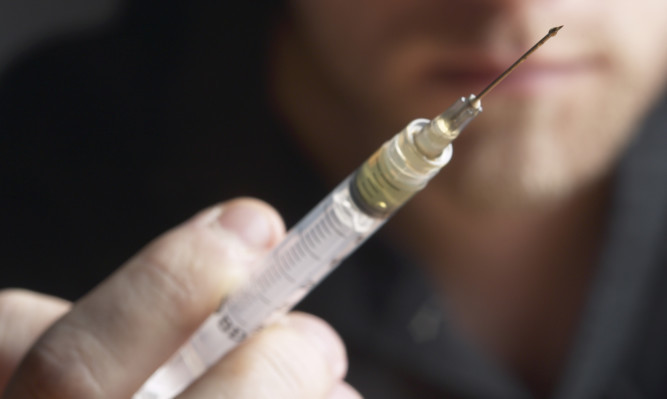A former sheriff has branded the war on drugs a “complete failure” and has called for narcotics to be legalised.
Alistair Stewart, who lives in Dundee, said that his 40 years of experience on the bench has left him “convinced” that the legalisation of drugs is “the only approachthat has any hope of success”.
Very few “large-scale” drug dealers are ever caught, he said, and that legalising narcotic substances could bring substantial benefits.
The former sheriff and Dundee University honorary professor admitted that many people would not agree with his views, but challenged them to “suggest a solution to the problem that is more likely to work”.
He told The Courier: “For 40 years I sat as a judge in various sheriff courts and, latterly, in the High Court of Justiciary.
“During these years I dealt with many cases involving illegal drugs. The more I did so, the more I became convinced that this country’s policy for dealing with drugs was wrong.
“It is quite apparent that we can never abolish drugs. There will always be a large number of people who wish to use them. The fact that they are illegal provides no deterrent.
“The imposition of harsher penalties appears to have virtually no effect on drug misuse.
“Education seems to make little impression. The so-called war on drugs is a complete failure.
“There is a school of thought that calls for decriminalisation of possession of drugs for personal use. Presumably this would mean that the supply of drugs would still be illegal.
“This approach seems to me to be quite irrational. The user of the drug would still require to be a party to an illegal act.
“As a result of my experience in the courts I am fully conscious of the fact that drugs can do immense harm.
“Nevertheless I am convinced that the only approach to the problem that has any hope of success is to legalise all drugs.”
The former QC argues that rather than bringing carnage, the legalisation of drugs could bring tremendous benefits.
“Their supply could be controlled by providing that they could be obtained only in specially licensed premises just as is the case with alcohol today,” he said.
“The main advantage of this would be that the illegal drug trade would immediately be wiped out.
“No doubt the large scale drug dealers, very few of whom are ever caught, would find other means of making money, but at least in the short to medium term their income would disappear.
“A second advantage would be that drug users would no longer require to commit crimes such as theft to fund their habit,” he said.
“A third advantage would be that the purity of the drugs would be controlled and the user would know exactly what he or she was getting.
“It would, of course, be possible for the Government to impose a tax on drugs just as it does with tobacco and alcohol.
“This might make my suggestion more attractive to some politicians.
“I appreciate that what I suggest will be strongly disapproved of by many people. So be it, but let these people suggest a solution to the problem that is more likely to work.”
A Home Office spokesperson said: “This Government has absolutely no intention of decriminalising drugs.
“Our drugs strategy is working and there is a long-term downward trend in drug misuse in the UK.”
